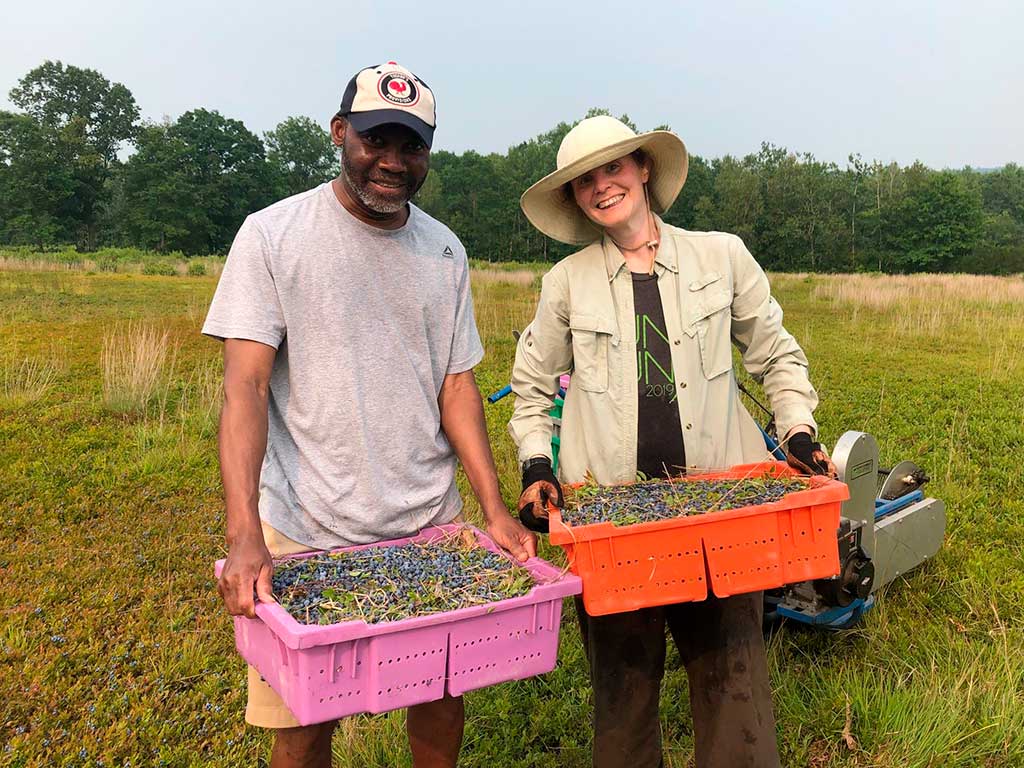We’re All in This Together
Wild Blueberry Harvest and the Climate Emergency
By Susana Hancock
Earlier this year, I skied across the Arctic conducting climate research in an area warming more than seven times the global average. In a few months, I’ll sail to Egypt as a delegate to the UN’s COP27 climate conference where compounding climate crises yield water scarcity, sea level rise, and conflict. In the interim, I’m home in Maine.

Maine feels safe, superficially insulated from any climate emergency.
Yet, while home, as I have every year for the past few, I spent the wild blueberry harvest working on an organic family farm in Lincoln County. Despite early predictions for a bumpah crop, severe drought decimated 70% of the expected yield by the time the Emerson harvesters were packed away on July 26th.
Maine is the largest global producer of wild blueberries and the only state with a commercial harvest.
Last summer, Senators King and Collins co-sponsored a successful resolution to declare July as National Blueberry Month in honor of the state fruit. Ironically, several decades ago when either senator could have been crawling around the barrens with hand rakes, the harvest would have been squarely in August. Not only have warming temperatures caused the season to creep forward – also meaning the berries are susceptible to spring frosts – but they affect the carbon sequestration capacity of the plants. This actually turns blueberries into net emitters.
From the top of the blueberry field, I can make out the outline of Isle au Haut where my cousin hauls lobster traps year-round. I think about how our Gulf of Maine is warming faster than any other contiguous body of water in the world, how our fish are changing, and about the increased fuel needed to venture farther from land.
From that same spot, I can pivot to see Southport Island. There Rachel Carson inspired a generation and challenged the chemical industry with “Silent Spring,” unfortunately while dying of one of the same diseases she associated with indiscriminate use of pesticides.
Like Carson’s title, climate devastation in Maine is quiet. It doesn’t conjure images of starving polar bears or civil war. Yet, look around, it is exposed like the barrens.
Susana Hancock is an internationally recognized climate activist and transdisciplinary scientist. When not traveling around the world [by train], she spends half the year in mid-coast Maine where she volunteers with Citizens’ Climate Lobby and has founded her own climate organization.
We’re All in this Together is a monthly Climate Justice column provided by the Portland chapter of Citizens’ Climate Lobby.





